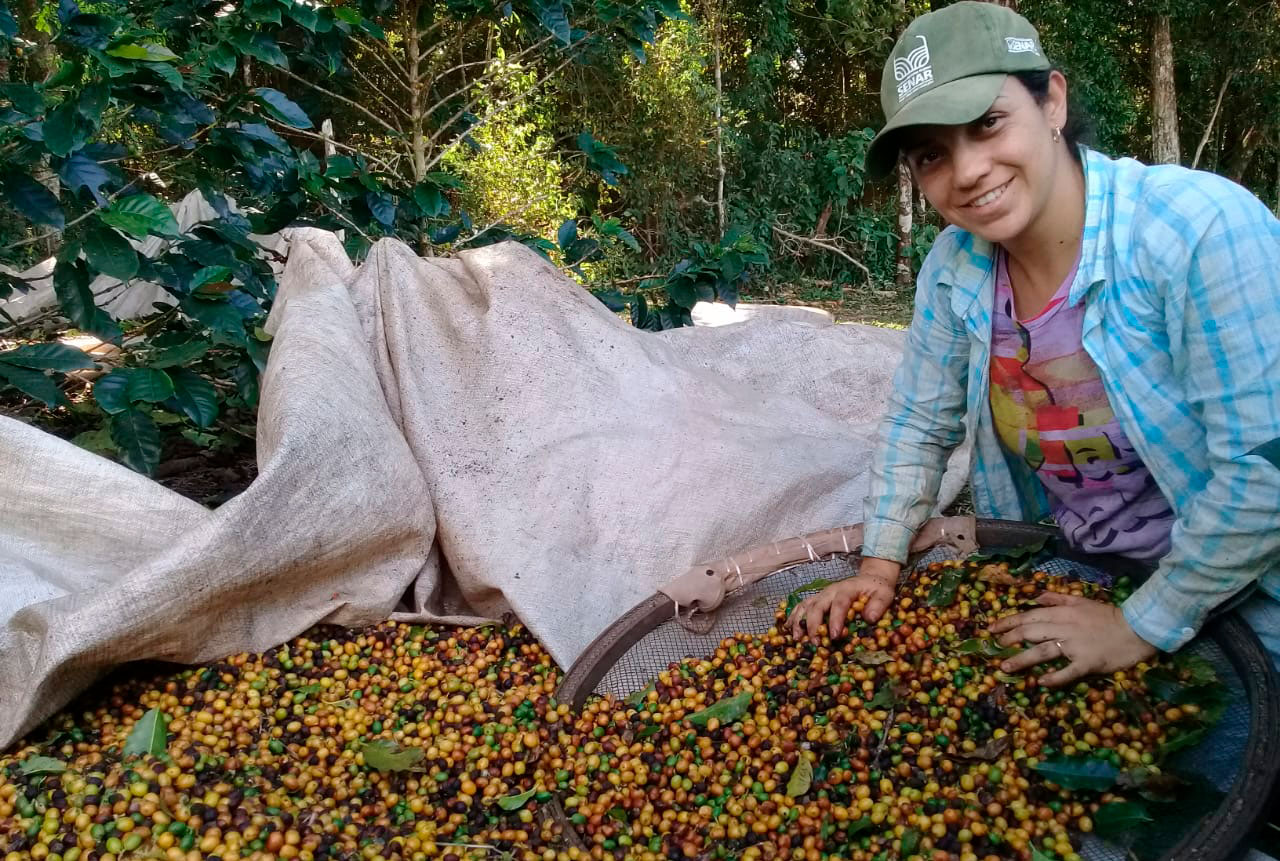Censo Agropecuário
Women gain space in agriculture, yet they are only 19% of producers
December 06, 2019 02h00 PM | Last Updated: December 09, 2019 10h17 AM

Twenty-year old Carmen Perez became the head of a farm in Barra do Garças, a municipality in the interior of Mato Grosso. Raised in São Paulo, Perez spent most of her childhood going to her grandfather´s farm who, in the end of life, transferred the estate to his children. As her family wanted to sell the estate, the young woman learned how to manage the farm and never left the property. Measuring 4 thousand hectares and having 2.8 thousand cattle head, the Orvalho das Flores farm stands out for having implemented practices of animal welfare.
Perez is part of a minority that increased over the last years: women heading agricultural establishments. According to the last Census of Agriculture, released in October (25), they are 946.1 women working as producers, which represents 19% of the total, surpassing the rate of 13% registered in 2006. "I think I was so obstinate in assuming the management and getting to know the business, that I did not consider the fact that being a woman was a restriction. I always tried to use it as a way of partnership of the male and female vision, which are very different visions but they complement each other", declares the cattle woman.
Between 2017 and 2018, Perez chaired the Woman´s Core of Agribusiness, an entity created from the necessity of gathering women in this sector to share their management experience. "It was a rather male universe, so they decided to create this core, which continuously increased. We carry out nine annual face-to-face meetings. It is a group destined to managers, women that are really heading the businesses", states her. In 2019, for instance, the group of women made a technical visit to Israel to learn new technologies.
Union in agriculture
Nearly 1,100 kilometers far from Perez´s farm, Minas Gerais-born Dayany de Assis manages half hectare of land with a crop of organic coffee. When she was a child, Assis spent her vacations in the grandparents ranch and, later, she began to work in their plantation. Nevertheless, she decided to assume agriculture as a profession 11 years ago, when she got married. "My husband had one hectare and half of land with a plantation of conventional coffee. I began to work with him and then I met a group of women producing organic coffee and I conformed to them", states the producer, who bought a piece of land to fulfill the dream of planting organic coffee.

The Organized Women Searching for Equality - Mobi group, currently coordinated by Assis, was created to give voice to women in the Cooperative of Family Farmers of Poço Fundo and Area - Coopfam. The history of this group is intertwined with its components since it was created in 2006.
One of them is Dona Maria, who widowed and had no right to vote in the decisions of the cooperative. "She was the only woman in the voting line and had no right to vote, because the quota was in her husband´s name. It was a very hard situation. From then on the group began to strengthen and jointly harvested coffee in her land. It began to get stronger, more resistant", reports Assis. Today, every woman enrolled in Coopfam has the right to vote.
"We women need to get organized, to have the right of voice in our cooperative. Since the beginning it was evident that we needed to get organized, because we had no right to vote. Each vote is per quota and this quota was in the name of our husbands. Our voice was not respected. I felt we women needed to occupy our spaces and increase our level of knowledge in order to answer to the chauvinism", declares Rosângela Paiva, one of the founders of the group.
Born and raised in the countryside of Minas Gerais, Paiva has the production of organic tomatoes her main source of income. She also is part of another profile of producer: those who share the management of the establishment with their husbands.
The 2017 Census of Agriculture surveyed for the first time ever the sharing of the management in the establishments. They are 1,029,640 establishments shared by couples, which represents 20% of the total, being 817 thousand women sharing the management with their husbands. "Besides the increase of women directly managing, now they also appear in the shared management", explains Antonio Carlos Florido, technical manager of the Census of Agriculture.
Entrepreneurship in the countryside
Bahia is the state with the highest number of women managing agricultural establishments. Elaine dos Santos is one of the 303.7 thousand women in charge of the work in the countryside in the state, a figure that takes into account producers either sharing the management with their husbands or not. Since 17 years of age, she works as a farmer in the region of Valença, a coastal municipality far 124 km from the capital of Bahia.

At the age of 27 years, Santos farms coffee, banana and cassava in an area of six hectares. "I am dedicated to my estate. Today, I exclusively live on the agriculture", states the producer who applied new techniques in her establishment and managed to increase the productivity: she changed from nine tonnes of cassava per hectare to 30 tonnes, using the same area.
"I am fond of agriculture since I was a kid. My parents are farmers and this helped to strengthen the link with the countryside even more. I managed to get respect and conquer my space, showing that women are able to take care of the country duties, sweeping the prejudice away", sustains her.




















